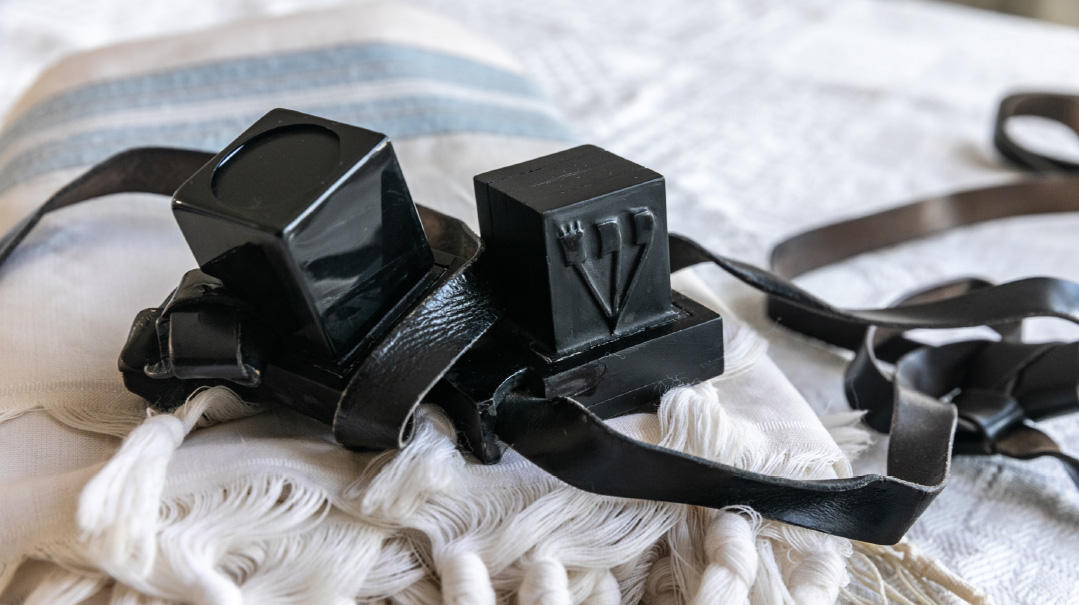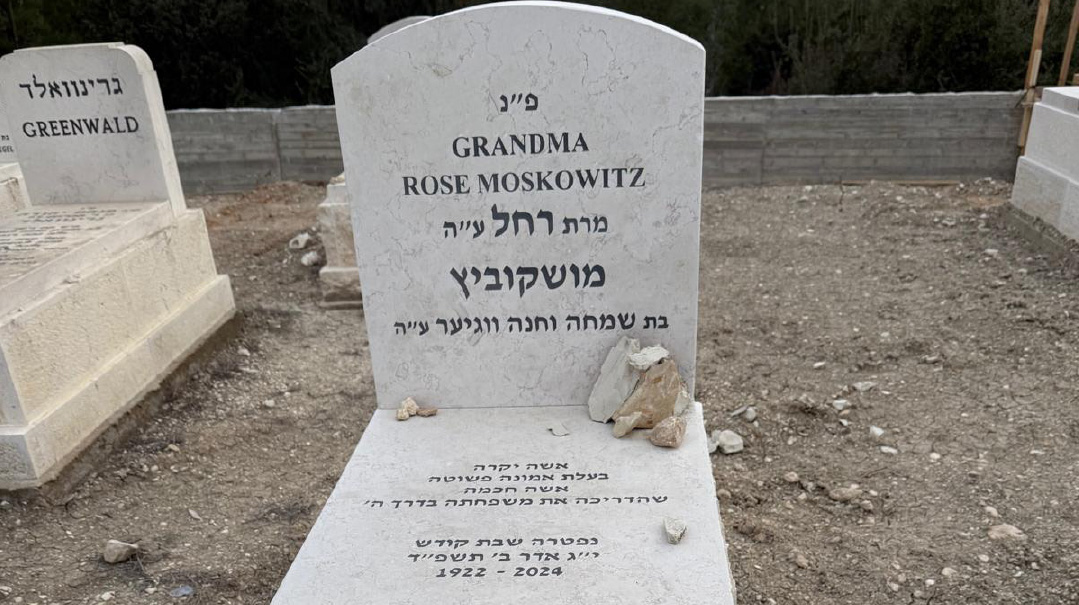The Heavenly Score
| August 8, 2023“Are you also going to tell me I’m crazy, like my brother?” he asked me. “Don’t take sides here. You have no idea what’s going on.”

As told to Fayga Pearlstein
For years, typical Sunday mornings in kollel would find me at my regular place on the bench, nose buried in my Gemara, waiting for my chavrusa Simcha to show up. He’d eventually waltz in and flash his trademark smile, lighting up the room with his presence.
I was a stickler for punctuality, Simcha was blessed with an easygoing personality. He was an energetic go-getter who had trouble sitting still, I was soft-spoken and diffident. He always wanted to be involved in the latest hock, I preferred to lurk on the sidelines. His mind was sharp and quick, I took the methodical and thought-out approach.
Our contrasting natures made us perfect chavrusas. We would always chat for a couple minutes, open our Gemaras to the place where we’d left off the day before, and before we knew it, morning seder was over.
Simcha and I went back a long way. We’d been chavrusas ever since yeshivah katanah, and we were still together in kollel, both newly married and shteiging away.
Simcha was always on the lookout for lucrative business opportunities. But because he was prone to rash decisions, he often ran his ideas by me; I could often bring to his attention a specific angle of a deal that he hadn’t thought of. I was more than happy to offer my advice whenever possible.
One day after seder, Simcha told me with a sparkle in his eyes that he and his brother Nachi would be partners in a new printing press business. Simcha had not asked me beforehand for my opinion, and since I was not one to offer unsolicited advice, I could only wish him luck.
While I thought highly of both Simcha and Nachi, I did not think they were a good match for business. They were both high-strung balls of fiery energy. It’s better for a business to have partners whose strengths and weaknesses balance each other — if one is zealous and ambitious, it’s helpful if the other is calm and level-headed. But Simcha and Nachi, being brothers, shared a lot of the same strengths — and weaknesses.
When their business took off, I was relieved that my intuition had apparently been wrong. Soon they had accumulated lots of capital and began investing in real estate. Although I again felt a sense of foreboding about this, I attributed my uneasiness to my risk-averse nature. Maybe Simcha and Nachi would end up like all the other families I knew who went into business together for whom everything turned out fine. And for a time, Simcha was floating on air from his success.
Then one Sunday morning, when Simcha stormed into kollel with bloodshot eyes and a pale countenance, I knew trouble was brewing.
“Simcha, what’s going on?” I asked, dread in the pit of my stomach.
“Pinchas, I made the dumbest decision in my life when I partnered with my brother,” he announced.
The entire story spilled out of him in a rush.
“Our business was doing so well over the last few months. Nachi felt it was time for us to expand, operate on a larger scale. But we’d need to invest all our profits, and then some. It was a big risk, all or nothing. I was afraid it would backfire. If the expansion didn’t make money, we would be left without a penny.”
Simcha lowered his gaze, furrowed his brow, then continued, “We had a huge fight. Nachi said I was not thinking ahead, only looking at the short-term. We both lost our heads. We said things in the heat of the moment that we both regret. Things did not end on a good note.”
Simcha was the picture of misery.
“But that’s not all,” he went on, his voice rising. “I’m still in kollel learning half a day. Nachi is working on the business full time. When we started, we agreed we would split everything 50-50. Even though I put in less time, we both put in the same amount of money when we started the business.
“Now, Nachi suddenly decides he wants 65 percent of the partnership because he works longer hours. I couldn’t believe what he was saying. A deal is a deal! How dare he go back on his word?”
It took him a minute to calm down. I tried to just hear him out and commiserate. I agreed that it sounded like a big mess, but I told him I hoped things would cool off and the two of them could make peace.
Unfortunately, that was not to be. Simcha’s entire family got involved and took sides. The situation exploded, and both of them dug in their heels. Now the machlokes threatened to break the whole family apart. Simcha became a shell of his former self and could no longer concentrate on learning. The haunted look in his eyes and the stoop in his shoulders showed how the fiasco was taking a toll.
My wife urged me to take matters into my own hands. She pointed out that I was close friends with Simcha, but I was also on good terms with Nachi. She encouraged me to sit down with both of them and serve as a mediator. My first reaction was to laugh at her suggestion. I never got involved in others’ lives and preferred to keep to myself. But seeing Simcha’s pain and the impact this fight was having on his family, I decided to go against my nature and arrange a meeting.
“Simcha,” I told my chavrusa one morning, “all this fighting and drama needs to stop. This situation is getting out of control. If the two of you don’t sit down and discuss your differences peacefully, who knows how this will end? The two of you need to sit down and talk calmly about how you could make things work.”
Simcha was shocked by the tone of determination in my usually reserved voice and grudgingly agreed.
It took every morsel of courage to reach out to Nachi, who was unhappy to take my call.
“Are you also going to tell me I’m crazy, like my brother?” he asked me. “Don’t take sides here. You have no idea what’s going on.”
I explained to Nachi that I was not calling him to talk him out of his business plans, but rather to try to repair the rift in his relationship with his brother. After some prodding, I finally got him to agree to sit down for a meeting, the three of us.
We settled on my house as the venue and came together that very night. The air was thick with tension as we gathered in the dining room. I murmured a tefillah to Hashem that I should be able to make shalom.
At first, they refused to look at each other and sat in their chairs like two insolent little boys.
“Listen,” I began, “if I may be quite frank, both of you have some serious inner work to do. When you go into business with a partner, you need to know that not everything will go 100 percent according to your plan. I know you both think you’re in the right, but in business, it’s not about right or wrong. It’s all about compromise. We can’t always have our way in life. You both want the business to be successful. You both want your relationship to be successful. To have those things, you need to meet each other halfway.”
I reasoned and pleaded for the next half an hour, trying to explain my opinion regarding their partnership agreement. I said they needed to figure out how to divide the responsibilities fairly so that Nachi didn’t feel like he was putting more energy into the business.
When I finished, I hoped my impassioned words had penetrated their hearts. Then there was a weighty silence.
Simcha was the first one to break the quiet. “I need to be honest with you, Pinchas, I don’t think I got such a good mussar shmuess since our yeshivah days.” He gave a wry chuckle. “It’s hard to admit, but I know you’re right. I can’t believe we acted in such a childish manner.”
His brother nodded in assent.
“I guess we get worked up so fast because of how we’re wired,” Nachi chimed in. “I’m still not sure how we’ll make it work. But Pinchas, you’re right. We need to discuss this like mature adults.”
Relief went through the room like a cool breeze. With that out of the way, we spent the next few hours trying reach compromise. They agreed to spend up to a certain amount on expansion while setting aside some money in a rainy day fund. To make it a fully equal partnership, they agreed that Simcha would take on additional responsibilities to make up for the hours he spent in kollel each day.
After we sorted out all the details, Simcha and Nachi both apologized to each other and agreed that the next time they faced an impasse, they would reach out to an unbiased third party for help.
The hour was late when Simcha and his brother left. I was thankful to Hashem that I was able to serve as a shaliach for restoring peace in their family. I had never considered myself an askan, but I was proud of what I had done for the sake of shalom.
Simcha and I maintained our chavrusashaft for another few years. As our families grew larger, we both left kollel, and eventually we fell out of touch.
Years passed, and before we knew it, my oldest was engaged to be married. As I was putting together the invitation list, I suddenly remembered Simcha and all the beautiful years of learning we’d had together. I found his number and reached out.
“I can’t believe it’s you,” he said when I called. “It’s been years. How is everything at your end?”
We caught up on each other’s lives. I shared with Simcha that my daughter was engaged and invited him to her wedding. Simcha said that he and Nachi were still in business after all these years, doing very well.
“Pinchas, I honestly have no idea where we’d be today without you. I still remember what you did for me and my brother. I literally owe you my life.”
When Simcha asked how I was getting by financially, I had to admit I was struggling. “Especially now with marrying off my oldest, it’s quite difficult. But Hashem has been so good to me, I can’t complain.”
Simcha sympathized and wished me the best of luck. He promised he’d dance with me at my daughter’s wedding, im yirtzeh Hashem.
But then, one week later, he showed up at my door, holding an unassuming shopping bag. I was surprised but happily invited him in.
From the bag, Simcha pulled out a thick bundle of cash and proffered it to me.
“Please,” Simcha said, “I want you to have the money. I meant it when I said I owe you my life. If not for your intervention, my brother and I might still not be on speaking terms. The least you can do is take this money. I want you to have it.”
I was blown away. I took the money graciously, and thanked Simcha for his generosity. I was in a trance-like state for weeks afterward. A good deed I did years before had served as a merit in my time of need.
Even when we forget about a chesed we’ve done, Hashem never forgets. He always keeps score.
(Originally featured in Mishpacha, Issue 973)
Oops! We could not locate your form.






